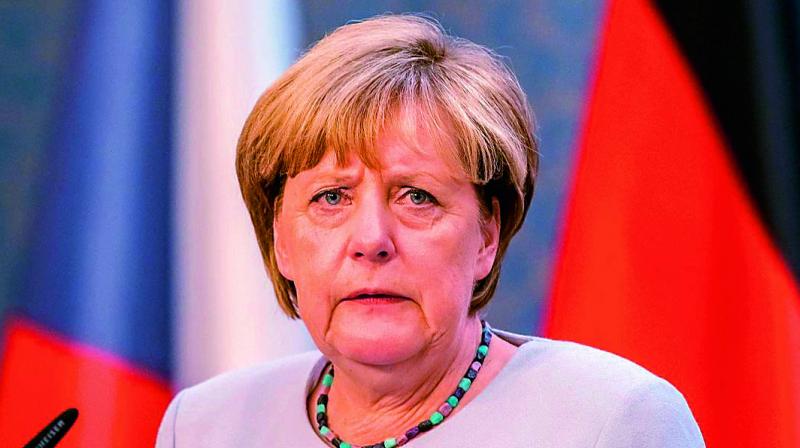Angela Merkel in tricky coalition talks

German Chancellor Angela Merkel huddled with her party on Monday after winning a fourth term with a far weaker score, now facing the double headache of an emboldened nationalist Opposition party and thorny coalition talks ahead.
If the campaign was widely decried as boring, its outcome was a bombshell — a populist hard-right surge poached votes from Ms Merkel’s conservatives as well as the centre-left Social Democrats, handing both their worst results in decades.
“A nightmare victory for Merkel,” said Germany’s top-selling daily Bild. “The governing parties and the Chancellor squandered the people’s faith in them,” it said.
After 12 years in power and running on a promise of stability and economic strength, Ms Merkel’s CDU/CSU bloc scored 33 per cent, according to final results, against 20.5 per cent for the Social Democrats under challenger Martin Schulz, who pledged to go into the Opposition.
Ms Merkel’s biggest challenge is to convince two parties into allying with her — the FDP and the Green party — who not only intensely dislike one another but are both cautious of losing credibility with their voters, Guardian said.
The election marked a breakthrough for the anti-Islam AfD, which with 12.6 per cent became the third strongest party and vowed to “go after” Ms Merkel over her migrant and refugee policy.
But AfD’s success was hit by party infighting just hours the election results. The party’s co-chief Frauke Petry declaring she won’t join its Bundestag group.
Citing “dissent” with more hardline colleagues, Ms Petry dropped her bombshell at a press conference, catching other key AfD figures by surprise as she abruptly left the room. The spectacle put a spotlight on the tug-of-war within the party between radical and more moderate forces at the top.

